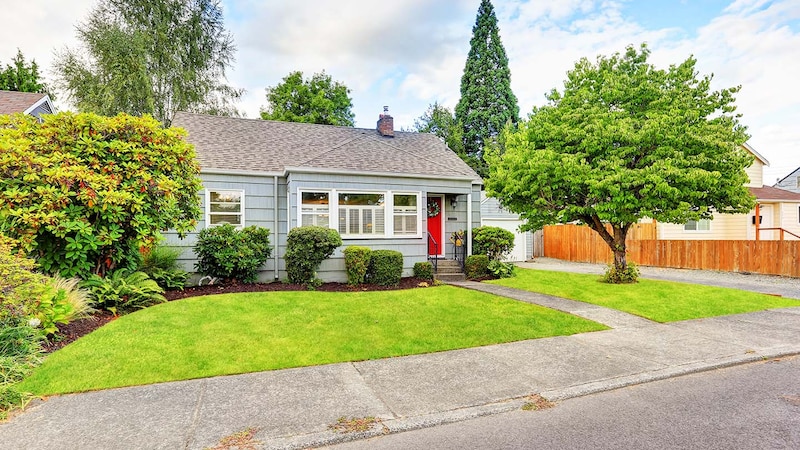Your guide to VA loans

Quick insights
- VA loans are backed by the Department of Veterans Affairs and, in some cases, require no down payment or private mortgage insurance (PMI), making them affordable for qualified servicemembers and veterans.
- Borrowers need a Certificate of Eligibility (COE) and must meet credit, income and property requirements to qualify for a VA loan.
- A VA funding fee applies to most loans, though veterans with service-connected disabilities may be exempt.
A VA loan is an affordable home financing option for active military members and veterans. VA loans offer a variety of advantages compared to traditional mortgages, including lower down payment options. Below is a look at the requirements to qualify for a VA loan and the steps to purchase your dream home with one.
What is a VA home loan?
VA home loans are backed by the U.S. Department of Veterans Affairs (VA) and are available to eligible active duty servicemembers and U.S. veterans. VA loans are typically issued by private lenders.
Who is eligible for a VA loan?
To qualify for a VA loan, you will need to meet certain service and credit standards. Eligibility is generally based on your time in active duty, the Reserves or National Guard, or as the surviving spouse of a servicemember. You’ll also need to meet VA underwriting requirements and mortgage lender’s guidelines, which may vary. You can confirm your eligibility through the Department of Veterans AffairsOpens overlay.
Benefits of VA loans
VA loans offer several advantages that can make homeownership more feasible for eligible service members and veterans. Some of the benefits include:
- No down payment required: Qualified homebuyers can often purchase a home without needing a down payment.
- No monthly mortgage insurance (MMI): Borrowers can save on monthly payments because VA loans don’t require MMI.
- Competitive interest rates: VA loans often offer lower rates compared to many conventional loans.
- Flexible credit and income requirements: VA guidelines may make qualification possible, even with limited credit history.
- Limited closing costs: The VA places a cap on certain fees which helps reduce out-of-pocket expenses at closing.
How does a VA loan differ from a conventional mortgage?
Aside from the qualification requirements, the biggest difference between a VA loan and a conventional one is the down payment amount. While most conventional loans require a minimum down payment, VA loans may not require any down payment. Here are some other differences between the two loan types:
- VA loans tend to have lower interest rates than conventional loans.
- You can avoid paying private mortgage insurance (PMI) with a VA loan.
- Credit qualifications are usually less strict with VA loans compared to conventional loans.
Are there any special fees I should expect to pay?
Yes. While VA loans usually involve fewer costs, there are still some fees you need to pay. One fee unique to VA home loans is a VA funding fee. This fee is paid directly to the Department of Veterans Affairs. The fee can be paid in cash at closing or can be financed with the mortgage.
Are there any restrictions to VA loans?
If you have not used or have fully restored your VA entitlement:
- No down payment
- No maximum loan limit
- Lenders may impose their own loan restrictions
If you do not have full entitlement (you have an outstanding VA loan that will not be restored before closing, or maybe you had a prior foreclosure on a VA loan), then your maximum loan entitlement is calculated by the county the property is in. The county limit is based on the FHFA conforming loan limits.
Entitlement is the amount of guaranty (or insurance) that the VA will provide the lender for the loan. This determines the maximum loan amount the lender will approve.
There are some other restrictions on VA loans. For instance, if you include anyone other than you and your spouse on the loan or title, then the amount of entitlement and thus your maximum loan amount may be impacted. You can also only purchase a home that will be your primary residence.
Additionally, the home you purchase must meet the minimum requirements related to physical condition. For example, the home you purchase should have the following:
- A roof in adequate condition
- A functional means of heating the home
- A clean and continuous water supply
- A structure and foundation free of termites and fungi
- Walls free of lead-based paint, often found in homes built prior to 1978
Another restriction relates to condominium purchases. If you plan to buy a condo, you must make sure it's on a list of condominium developments approved by the VA. If it isn't on the list, your lender can request approval from the VA.
How does the VA loan process work?
If you've never applied for a VA home loan, you may wonder how a loan is finalized and what you can do to get things started. Obtaining a VA loan is much like securing a conventional mortgage, but with a few extra steps. We’ve outlined the steps below to help ensure you don't miss any important requirements.
1. Find a lender
The path to securing a VA loan begins by finding a VA-approved lender. Schedule a consultation and tell your lender that you’re interested in obtaining a VA home loan. Your lender will review mortgage options with you and outline the home loan requirements.
2. Secure a Certificate of Eligibility
A Certificate of Eligibility (COE) is a document showing your lender you have the required active-duty service or service history to qualify for a VA loan. You can apply for a COE onlineOpens overlay or by mail. In most cases, the online application process is much faster. Your lender can also assist you with this process.
3. Get preapproved for your loan
Once your lender has your COE, the next step may be to get preapproved for your loan. Many lenders make it easy for you to start this process online by providing some general financial information and details about your home loan needs.
4. Find your home
This is the most exciting part of the loan process. Unless you’ve been preapproved for your loan, remember to calculate how much home you can afford. This helps you narrow your search and ensures you don't strain your finances.
5. Make an offer
Once you find your home, it's time to make an offer. If you’re working with a real estate agent, they can provide valuable guidance as you negotiate with the sellers. Remember to keep these points in mind when making an offer:
- Current real estate trends in the area
- The price the sellers paid when they purchased the home
- Sale prices of comparable homes in the same area
- The home's physical condition
- The length of time the home has been on the market
6. Submit required documentation
To complete the VA loan application process, you need a signed purchase contract. Also known as a Contract of Sale, this document formally outlines the price the buyer and seller agreed to and is required to move forward with the appraisal process and loan closing. VA Contracts often include a VA Escape Clause (aka VA Option Clause) which ensures if the appraised value comes in less than the sales price, you can cancel the contract and get a refund of any earnest money you may have put down.
7. Obtain an appraisal
To qualify for VA financing, your home must be appraised by an appraiser assigned by the VA through your lender. The appraiser is responsible for estimating the value of your property. Additionally, the appraiser must verify that the home meets or exceeds VA minimum property requirements. Once the appraisal is successfully completed, the underwriter can continue with the approval review.
8. Conduct a final walkthrough
The purpose of a final walkthrough is to ensure the home's condition has not changed. Ideally, the walkthrough should be done by you and your real estate agent. If possible, it should take place the day of or before your scheduled closing.
9. Head to your closing
As the final step of the VA loan process, a home closing involves the transfer of the home to you. Once you sign all required loan documents, you'll receive the keys to your new home.
What to do if you are interested in a VA loan
VA loans offer many advantages to qualified homebuyers. But you need to make sure you meet qualifications established by both the VA and your lender. To determine whether you may be eligible for a VA Loan, consider speaking with a Home Lending Advisor.



